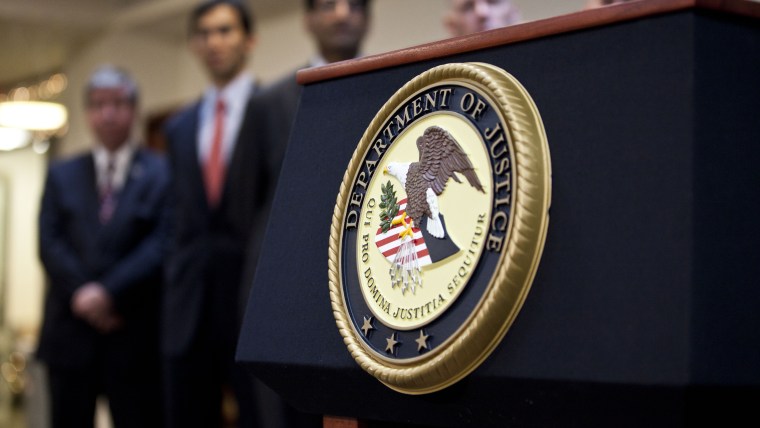After Attorney General Jeff Sessions stepped down yesterday at Donald Trump's insistence, the Justice Department obviously needed an acting A.G. Under normal circumstances, the post would be temporarily filled by a deputy attorney general who'd have the relevant experience and the benefit of having been confirmed by the Senate.
As Rachel explained on the show last night, Trump chose a very different course.
With Jeff Sessions now out as attorney general, President Donald Trump's choice to fill his shoes, at least temporarily, is in the position to have a significant impact on the scope of special counsel Robert Mueller's investigation into Russia's interference in the 2016 election.Matthew Whitaker, who has served as Session's chief of staff since late 2017, has been tapped to become acting attorney general and will therefore take over the role of overseeing Mueller's probe from Deputy Attorney General Rod Rosenstein.
The game of musical chairs at the DOJ may seem like bureaucratic trivia. It's not. To fully appreciate the scope of the dilemma, it's important to understand who Matt Whitaker is.
After serving as a U.S. Attorney during the Bush/Cheney era, Whitaker more recently was basically a professional pundit who appeared on television quite a bit -- it's probably how Trump came to learn of his work -- where he was a frequent and harsh critic of Special Counsel Robert Mueller's investigation into the Russia scandal.
In fact, Whitaker went so far as to call the probe, in Trump-esque language, "Mueller's lynch mob."
In one especially memorable TV appearance, Whitaker described a scenario to CNN in which Sessions would be replaced, and his successor would reduce the special counsel's office's budget "so low that his investigation grinds to almost a halt."
As of last night, Whitaker now oversees the Mueller investigation.
There are all kinds of reasons to be concerned about Whitaker's qualifications and record. He is, after all, a shamelessly partisan loyalist, with a strange, far-right worldview, and with close ties to a witness who's testified in the Russia scandal.
Incidentally, Whitaker also helped lead "an invention-promotion company that was shut down earlier this year amid a Federal Trade Commission investigation."
By any fair measure, Trump's decision to put this guy in charge of the Justice Department, even on a temporary basis (that could last months), is awfully tough to defend.
But it's the threat to the Mueller investigation that's especially notable in the short term. We're dealing with a dynamic in which the acting attorney general is responsible for overseeing a probe he spent months publicly condemning. David Laufman, the former chief of the Justice Department's Counterintelligence Section, told Rachel on the show last night that Whitaker may not have a legal obligation to recuse himself, "but there is, at a minimum, to put it kindly, a grotesque appearance of a conflict, an appearance of impropriety by virtue of his many statements questioning the legitimacy or the scope of the special counsel's investigation."
Seven months ago, the Senate Judiciary Committee easily approved a bipartisan bill to protect Mueller and his investigation from political interference. It's gathered dust ever since, with Republican leaders insisting that the proposal is unnecessary.
Senate Minority Leader Chuck Schumer (D-N.Y.) argued, "Rather than waiting for a constitutional crisis, the full Senate should act now." That was in April.
The crisis appears much closer now.
As a procedural matter, Congress could take up the bill during the post-election lame-duck session. As we discussed in September, there's plenty of time for Mitch McConnell and Paul Ryan to do the right thing. It's simply a matter of political will.
